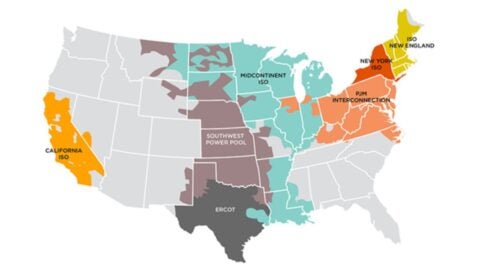Broad Support for Cleaner Cars — Except from Some in Congress
At a Congressional hearing last week, some members of Congress sought to undermine historic fuel economy and greenhouse gas standards that will save Americans money at the gas pump, help break our addiction to foreign oil, strengthen our economy, and reduce harmful pollution.
The shrill attacks on those historic standards were in sharp contrast to the broad support for cleaner cars, including support from the U.S. auto industry.
Automobile manufacturers have intervened to support the standards in the Federal Court of Appeals in Washington, D.C. In recent filings in federal court, the Alliance of Automobile Manufacturers and the Association of Global Automakers have characterized these standards as:
valid, mandated by law, and non-controversial
(That’s from a D.C. Circuit Court filing from September 30, 2011 — Brief for Intervenors Alliance of Automobile Manufacturers and Association of Global Automakers, Coalition for Responsible Regulation v. EPA, Docket Number 10-1092)
The State of Texas and its allies, along with an industry group representing coal mining interests, have sought to topple the landmark clean car standards. The automakers — those directly regulated by the new standards –have forcefully countered that, if legal challenges are successful in overturning EPA’s clean car standards, it “would result in tremendous hardship to their companies” and that the associated costs would be “substantial.”
(Those two quotes above are both from court documents: the first is from the same brief I already cited, and the second is from a November 1, 2010 filing with the same D.C. Circuit Court: Intervenor Alliance for Automobile Manufacturers’ and Association of International Automobile Manufacturers’ Opposition to Motions for Stay, Coalition for Responsible Regulation v. EPA, Docket Number 10-1092).
The Environmental Protection Agency’s (EPA) standards govern greenhouse gas emissions, and not just fuel economy. That means EPA’s measures will create business opportunities throughout the vehicle supply chain.
Honeywell, a leading global manufacturer of air condition systems, filed an amicus brief in support of EPA’s standards, noting that :
technologies for reducing the United States’ carbon footprint have the potential to create the kind of ‘green jobs’ that are a priority for America in the 21st century
(That’s another quote from a D.C. Circuit court filing, this time from September 8,2011: Amicus Brief of Honeywell International, Inc., Coalition for Responsible Regulation v. EPA, Docket Number 10-1092).
Honeywell recognized the possibility that innovative technologies spurred by these emission standards have the potential to spread throughout the global economy, creating business opportunities for companies at the forefront of this technological innovation. The automobile industry developed the catalytic converter in response to clean air measures, and, through commonsense regulations like these vehicle fuel economy and greenhouse gas standards, the United States can remain at the forefront of technological innovation in the global automotive market.
These benefits are echoed by members of the small business community — eventual purchasers of the new, more fuel efficient vehicles.
In a press release, Small Business Majority founder and CEO John Arensmeyer emphasized the importance of strong emissions standards, stating that:
[s]mall businesses understand that to survive in this tough economy they need to innovate, and that strong fuel efficiency standards will assist them in doing so by helping them save money in their own business and creating new market opportunities
In fact, in a recent survey, small business owners overwhelmingly supported stronger fuel-efficiency standards for cars and light trucks, with 87 percent stating that it was critical for the U.S. to take action now to increase fuel efficiency.
The benefits to covered business are, of course, just a portion of the environmental and economic benefits associated with EPA’s clean vehicle rule:
- More fuel efficient vehicles will save consumers money. American families will save more than $3,000 on fuel costs over the lifetime of a model year 2016 vehicle, and, for families financing a vehicle, the savings will be immediate.
- The standards are projected to cut gasoline consumption by 75 billion gallons.
- The standards are also projected to cut harmful global warming pollution by over 20 percent, avoiding 960 million metric tons of CO2-equivalent
As a result of these myriad benefits, EPA’s vehicle standards have strong support from a diverse coalition, including auto manufacturers, states, environmental organizations, and veterans organizations. Members of the veterans’ organization Operation Free testified at public hearings across the country about the vital importance of EPA’s clean vehicle rules in breaking our addiction to foreign oil.
Despite these significant benefits and the strong, broad-based support for vehicle greenhouse gas emission standards, some in Congress are attempting to topple these common-sense rules on the theory that doing so would ease burdensome regulation. Ironically, overturning these regulations would have precisely the opposite effect – constraining business innovation, burdening cash-strapped consumers, and harming the environment. That’s a result that would benefit no one.












